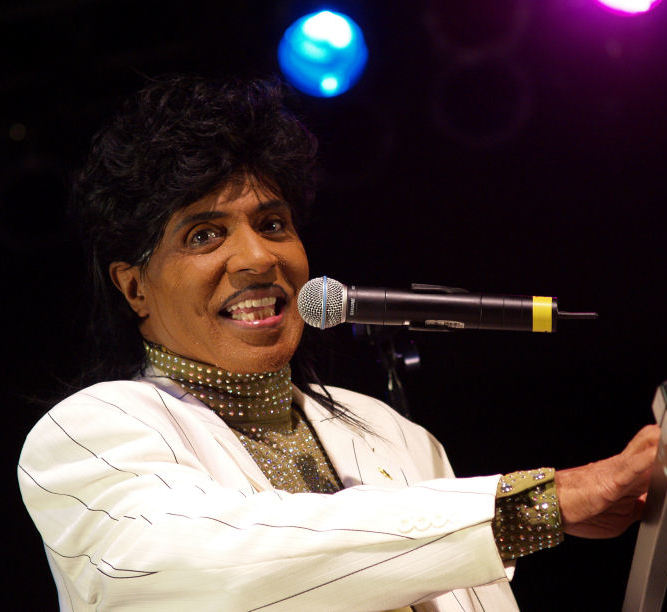One of the most remarkable and incredible events of Father Charlie’s life was his involvement with Abie Nathan’s Peace Ship.
The year was 1969 and Father was still at St. John’s. While driving along The East River Drive one day he noticed a small white freighter with “Shalom” painted on its side, and naturally, it caught Father’s interest. Two months later he saw the ship again at a different location, and this time he went aboard. This visit began his intense relationship with the ship, The Peace Foundation, and Abie Nathan.
In 1969 the Dutch Peace Foundation, headed by Dr. Zeegers, formulated an idea to bring a lasting peace to the troubled Middle East. The idea was to provide a completely neutral atmosphere for meetings between Arabs and Jews.
The idea the foundation formulated was that a ship anchored in neutral waters would be the most amicable place for an Arab/Jew summit. So generous people from the Netherlands donated $70,000 to purchase a freighter, an old Dutch coaster(40 years old and docked for years) named Cito, formerly called Rolf.
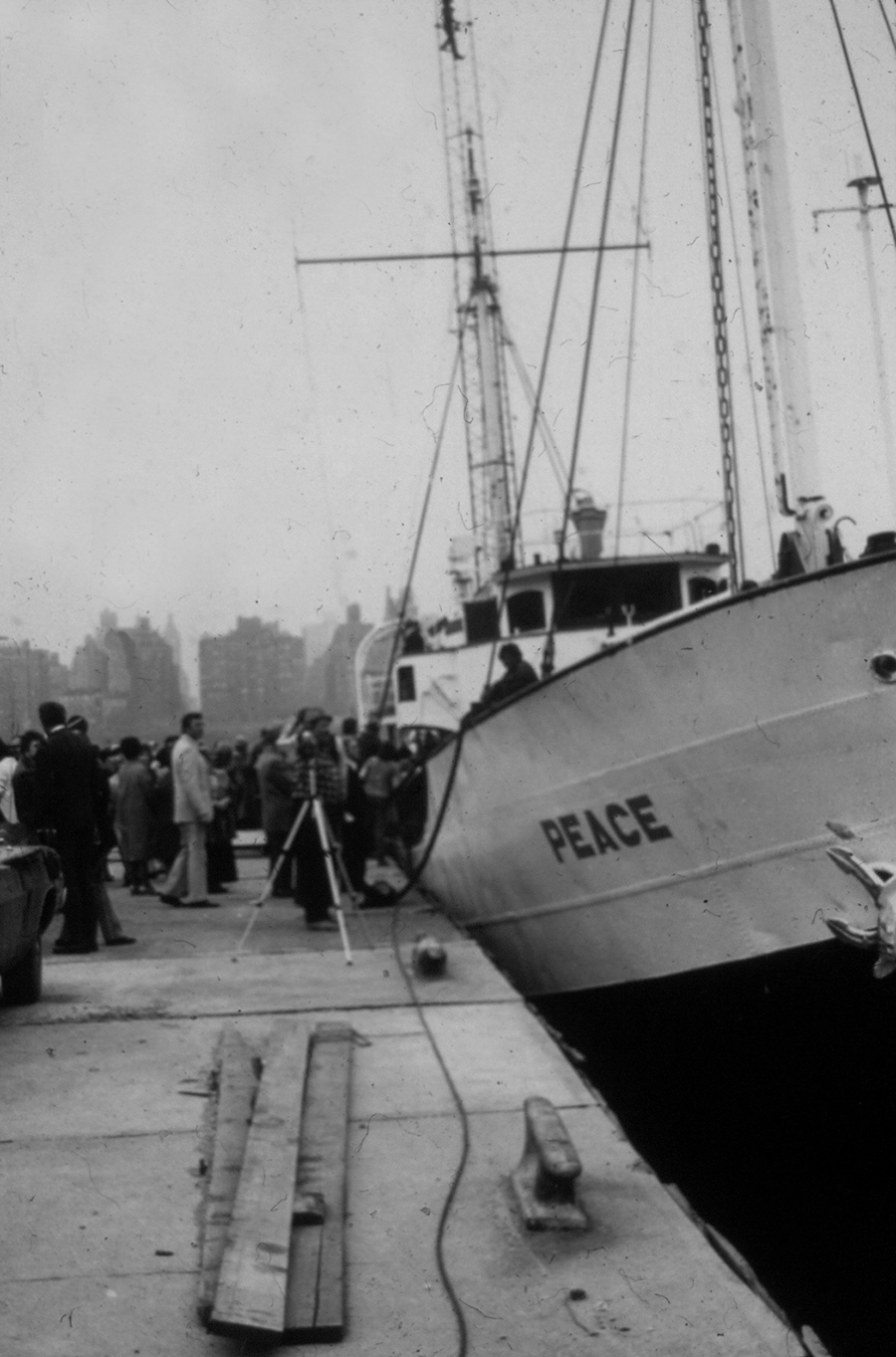
The ship was then re-christened The Peace Ship and sailed to New York City where Abie Nathan, an Israeli peace activist, was asked to fit her with a radio transmitter, radio station, and antenna. After preparations, Nathan would take the ship to the Middle East.
Peace in the Middle East was a passion for Nathan, an ex-Israeli Air Force pilot who once landed an Israeli plane in Egypt and requested an audience with President Nasar in order to talk about peace. When he landed back in Israel he was jailed: his mission had been to bomb Egypt, not talk peace!
Abie Nathan’s background also included raising $100,000 for food, medicine, and vitamins for the Congo. Some of the money he had raised standing on the steps of St. Patrick’s Cathedral. Once when St. Patrick’s was robbed, Nathan wrote a $7,000 check to cover the amount lost. Nathan had published a book and owned an art gallery. To help raise funds for the ship’s radio equipment, he had sold his restaurant in Israel.
Nathan had estimated that it would take six months to fit the ship with the essential radio equipment; however, the ship remained in New York for two and a half years, and another year in New Jersey before the necessary funds were obtained and the radio work completed.
During this time, 1969-1972, Father Charlie spent all his spare time scraping and painting the ship, while Father Barai, who built Radio Vertas in the Philippines, was building the radio equipment for the ship out on the West Coast. Meanwhile, Nathan traveled attending to personal business and fund-raising, leaving Arthur Sheehan, the American writer in command of the ship.
The ship was at this time docked in the East River at 65th St. in New York City. Right from the start, Abie Nathan had proclaimed that there should be justice on both sides regarding the Israeli-Arab conflict. Some people disagreed with that and sabotaged the ship. One day Abie heard scraping sounds on the side of the ship. A section of the painfully expensive and newly-built radio tower had been mysteriously dismantled and thrown overboard. Another time shots were fired at two crewmen from a speeding car on East River Drive.
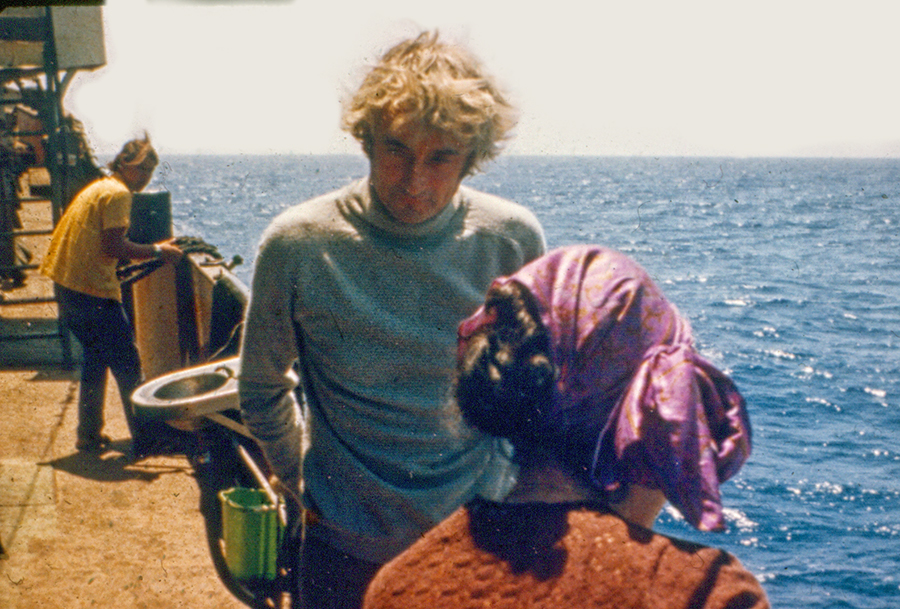
The ship was then moved to Pier 16 in Manhattan near Barklay St. where several mysterious fires broke out, the worst of which took 12 fire trucks, two fireboats, and ten hours to extinguish. Father was returning to the ship from New Jersey to find the entire pier on fire. Arthur Sheehan and the one crew member on board were told to evacuate the ship. Father realized that if the pier burned, the ship would too, so he acted quickly.
He ran past the cops and the firemen and boarded the ship, quickly loosened the bowlines and yelled to the firemen to loosen them off the dock. He then ran aft to the stern and did the same thing. leaving the gang plank the only thing holding the ship to the pier. Father then yelled to the firemen to pull the plank back onto the pier.
“But how will you get off?” They yelled.
“A son doesn’t desert his mother,” Father yelled back.
Father then went to the rope locker, found a line, and heaved it to the nearest fireboat. The ship was then pulled and then pushed to an adjoining dock. One of the culprits who set the fire was there, terribly disappointed not to see the death of the ship.
“You can’t tie that ship up here; this is a city dock,” he yelled. Father nearly hit the guy with a line, but the ship was secured and saved from a burning inferno.
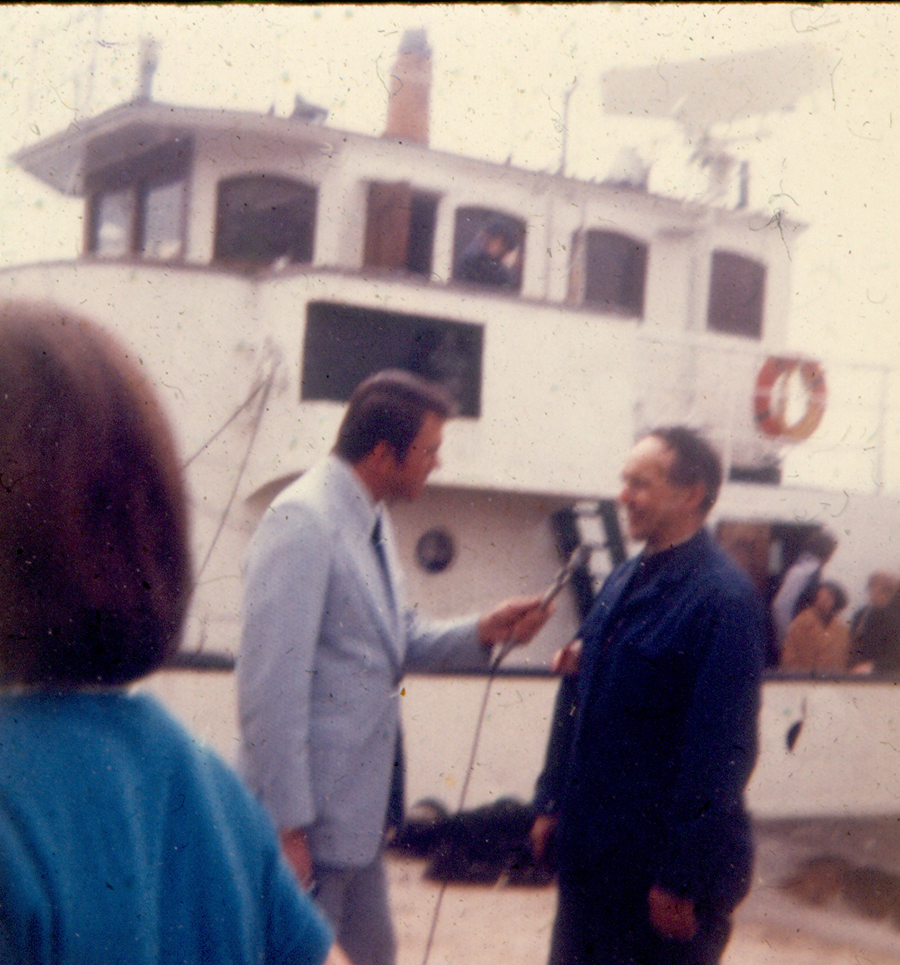
For a while the ship was in Brewer’s Dry Dock in Staten Island.. At this time the ship was used in a movie, the sequel to The French Connection. They filmed at night so they could have the lights if Manhattan in the film, and Gulf/Western gave $10,000 to Abie Nathan for the use of the ship.
It was then decided to move the ship to safer waters in New Jersey. With the help of Mayor Defino of West New York, New Jersey, and Teddy De Clemente, a safe port was provided at River Road and 60th St., in West New York. This worked out wonderfully for Father since his parish was just up the road in Fairview.
But the moving to 60th St. in West New York was not a smooth transition. On the day of the move, there were hurricane winds of 80 mph. By that time the ship had secured a Dutch captain, and he told Abie not to move the ship in such weather. It was extremely difficult to dock the ship in such winds, and after many desperate attempts, they finally tied up at an old decrepit pier near the intended 60th St. But Abie Nathan was stubborn with a quick temper, and he insisted the ship be docked at 60th St. The captain argued and Abie lost his temper and fired him
One afternoon Father got a call from Abie Nathan: “the ship is going to sink! The generator and the batteries are dead; there’s no heat or electricity; everything is frozen; the pipes are going to burst; we’re going to sink; come quick!”
Father grabbed his Mass kit, work clothes, and little Joe Scala, his altar boy, and sped to the ship. When he got there, everything was dark and cold.
“Go down to the engine room,” Abie said. “Hans the engineer is on vacation for two weeks; we’ll sink if those pipes burst!”
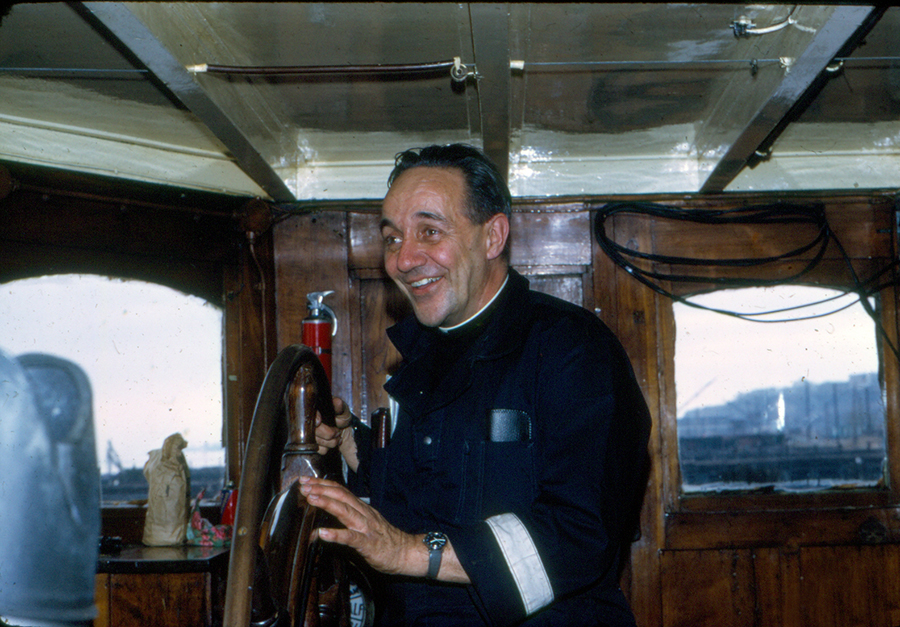
Father put on his work clothes and his gloves and began the dark and perilous descent to the engine room, with brave little Joe Scala right behind. They had to climb down two flights on slippery ladders in the dark with the possibility of the ship sinking any minute. All Father had with him was a missal, a plastic bottle of altar wine, a pix with some altar bread, a flashlight, a pint-sized altar boy, and hope in the power of the Mass.
In the darkness Father had to guide the feet of the little boy who followed him. If they fell, it would be a 40 foot drop onto a solid steel deck. It was pitch dark and freezing cold, and Father was very scared.
Finally Father and little Joe reached the bottom of the ship where Father said Mass with a little flashlight. When little Joe asked “Father where’s the chalice?” Father thought of young Isaac asking Abraham “Where’s the sacrifice?” To save the ship, thought Father, I risked my little altar boy to the chance of drowning with a foolish priest trying to save an old Dutch freighter from sinking to the bottom of the murky Hudson.
They were 25 feet below the water line now and Father prayed: “O my God please don’t let little Joe drown; I’m a fool for bringing this innocent kid on such a dangerous mission and if those lines burst we’ll never get out of here alive. I believe in God the Father almighty…Lord You knew about ships in distress; You felt storms at sea; don’t let this ship go down.”
Father finished the Mass and the two of them climbed up the slippery stairs in the cold darkness. In a few minutes they could see the stars and were breathing fresh air. They went to the Captain’s cabin, and there was Abie Nathan huddled over a candle.
“Did you do something to save the ship; O I wish Hans the engineer was here; this is terrible,” he said.
Father returned to St. John’s. Several hours later he learned that Hans the engineer had miraculously appeared, returning from vacation a week earlier than scheduled. He fixed the generators, charged the batteries, and contained two bursting pipes from flooding the ship.
Father praised the Lord for his miracle Mass 25 feet in the waters of the Hudson.Father was getting more and more involved with the ship. Originally, Abie planned to have a Catholic priest, a Protestant minister, a rabbi, and an Iman on board. But not one of them could get away for the proposed long journey; they all had families to support, all except the priest!
So Nathan began requesting Father Charlie’s services for the project from Archbishop Boland of Newark. Since the ship would be sailing into war waters, Nathan(who had been educated by Jesuits) wanted a Mass offered each day. And Father was so willing to go that he even took a vacation to Israel in order to learn its geography.
Now I’m In It For Real!
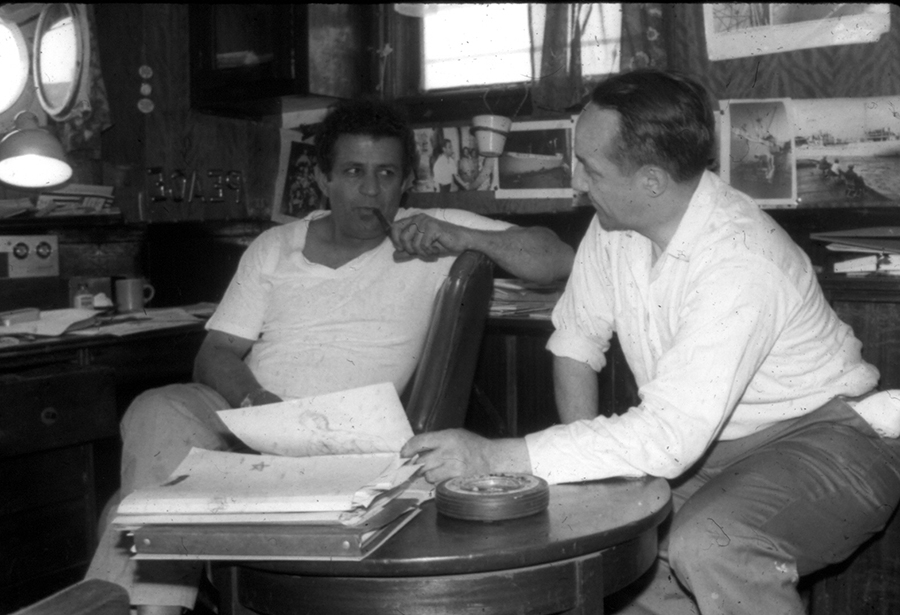
On January 6th, 1973, Father received a letter from Archbishop Boland. He had been assigned to The Peace Ship, effective January 13th! Now he was in it for real! For the last three years he had spent his days off and his summer vacations working on the ship. And when Abie was in Israel, he had visited the ship nearly every day to help Captain Arthur Sheehan.
But now he was indeed it in for real. On the day he received the letter of his new assignment, there was a wedding at St. John’s. The groom read a very famous Lebonese poem about leaving, and there was Father, tears streaming down his face knowing that he was leaving St. John’s after 19 years.
Meanwhile the problem of funding The Peace Ship continued. Abie and Father did everything in their power to raise money. A musical was presented at Carnegie Hall, and Father gave lectures aboard the ship. One of his parishioners from St. John’s gave him $5,000 and loaned him another $5,000. And another gave the ship an additional $4,000. Celebrities visited the ship, but still, another $50,000 had to be raised to get the project afloat.
Around this time Father was taking a course in Navigational Radar at the Seaman’s Church Institute in Brooklyn. On the day of one of his exams, Abie was scheduled to give a talk at the house of a Mr. Miller, a wealthy Jewish friend. Abie intended this to be a fund-raising venture, but had to leave town suddenly and sent Father in his place. Father told those gathered at the Miller house that unless they came up with some money, he would get Abie drunk and baptize him a Catholic. $1200 was secured pronto, and Father and Abie had a good laugh about it when Abie returned.
Nathan was greatly influenced by Mohandas Gandhi, and he began a hunger strike until the $50, 000 was raised. He also requested a Mass every day for the ship. Within two months, the money was raised.
So finally, after four years of struggle the ship was ready to sail to the Middle East and provide a neutral ground for Arabs and Jews to discuss their problems and hopefully end their conflicts and hostilities. They loaded up provisions for a 6 month stay at sea and wondered how the world would react to a pirate radio ship. Father’s official duties were originally priest, but evolved into liaison between Abie Nathan and the crew, Purser, helmsman from 6-12 morning and night, cook, dishwasher, waiter, and mess man.
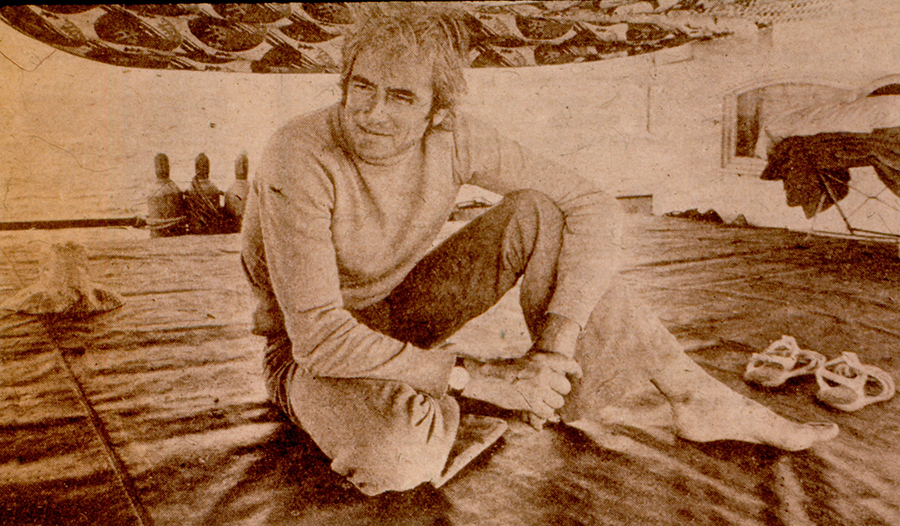
All the hard work, faith, and generosity of good people had finally come to fruition. People like Teddy De Clemente, who by allowing the ship to dock free at his pier, saved the project $10, 000, bringing severe financial losses upon himself as a result. Then there were the kind and generous people of St. John’s parish who gave hundreds of work hours and much money to the project.
Various Protestant as well as Jewish clergy lent a hand too, people like Rabbi Steve Shafer and his two sons, and Bishop Swanstrom. And there were other good people who helped tremendously as well, people like Larry Burns, Bob Miller, Eileen Egan, and of course Arthur Sheehan. They had all helped make the approaching departure of the ship a reality.
It was decided they’d leave on March 15th, 1973; the ship and her crew of 16 were ready. TV and radio stations sent reporters out to see the old ship off. Dr. Zeegers arrived from Holland and a Father Bourret, S.J., flew in from Japan. The Jewish press was there, along with priests, sisters, and students from St. John’s Church. An hour before they sailed, a friend named Adolph Theobald brought his gift offering: a bag of ready-mix cement.
They left New York Harbor and set a course due east for The Strait of Gibralter, but four hours out of New York City they met up with 90 mph winds and 40 foot waves. Captain Halvorsen pointed the nose of the ship into the north‑easterly storm. The ship wrestled with the terrible wind and water. Everything had to be tied; water was everywhere. Then a leak was found in the steel plates of the ship’s side. Fuel oil was beginning to flood the port passage way. The ship’s only sextant fell and broke, and the Captain was unable to repair it. Abie thought the ship was going to sink, and he broadcast as much:
“I am told that we have a hole in the starboard side of the ship and six inches of diesel fuel in the port side…”
Then the generators went and no further communication was possible. The Coast Guard had received the broadcast and estimated the ship to be 30 miles off Atlantic City. The frantic families of the young boys from the New York area who had volunteered for the trip drove to Cape May, New Jersey with wild fears of finding wreckage and survivors.
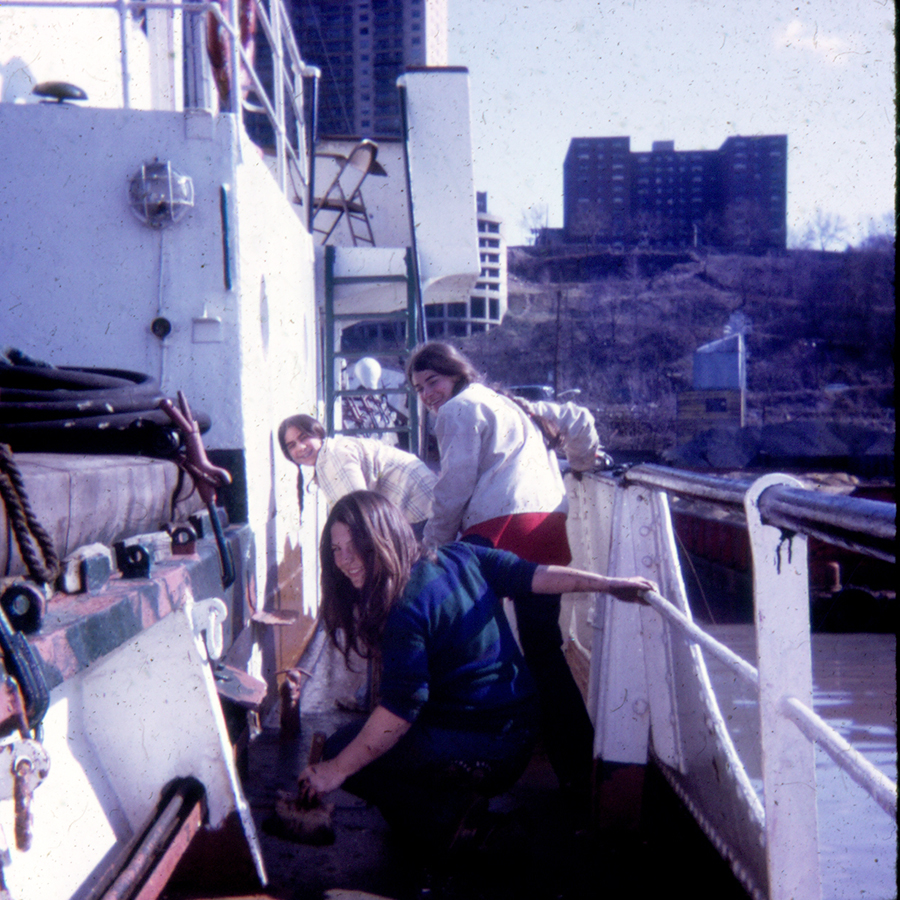
But the Captain kept calm and headed the ship away from the head‑on waves to lessen the pressure on the leak, and he told the engineers to build a wooden box, fill it with cement, and place it next to the leak. Miraculously, one of the last gifts the ship received an hour before it sailed was a bag of ready‑mix cement, given to the ship by Adolph Theobald. Little did he know how vital his humble gift would become.
“Hail Mary full of grace; please keep that box in place,” pleaded Father during the fierce storm. Well the box held for six days and six nights! The devils of hell wanted to stop the ship and her mission, of that Father was sure.
The storm however could not be controlled and raged on in violent fury; it took two men to hold the rudder steady, and Father helped with six hour shifts at the wheel. The Captain considered turning back to Newport Virginia, but after discussion it was decided instead to make slow headway to Bermuda.
The storm was a killer; two newer ships were lost, The Anita, and The Norse Variant, both Norwegian. They heard one of the ship’s distress calls while they still had their radio and tried for hours to communicate with the doomed vessel; it was a horror for captain and crew to know that the two Norwegian ships were in trouble if not already under‑‑a horror to know and be able to do nothing.
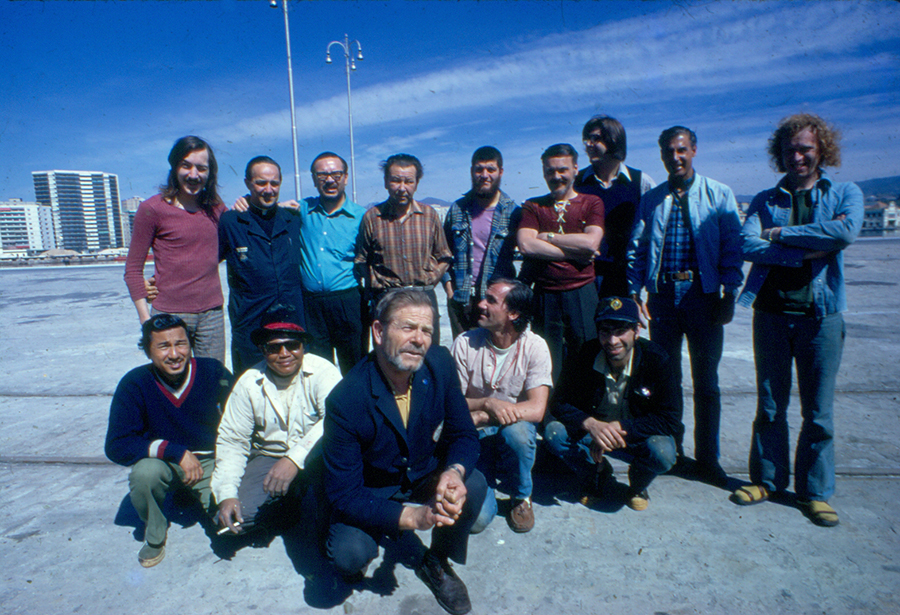
Both of the doomed ships were carrying coal. The Captain surmised they must have been hit broadside because they did not steer into the storm but kept to their schedules instead, a practical move as far as shipping is concerned, but so often tragically expensive in lives and ships. Captain Halvorsen surmised that the ships rolled with the storm, and their cargo of coal shifted, and they sank. They learned later that a McAllister tug had also gone down in the storm. A total of 60 men were lost; one was rescued.
The radio was out for five days and nights, and for five days and nights the crew wrestled with the storm. They didn’t know where they were going; the only thing they knew was that they were sailing directly into the storm. They found out later that they had been sighted by another ship somewhere off Cape Cod, but there had been no way for the two ships to make contact.
Things got pretty bad on board; many crew members were sick, not only because of the storm, but because diesel fuel had contaminated their drinking and bathing water. All seemed lost and a watery grave imminent; it took great faith and self‑control not to panic.
“Things will get better said Captain Halvorsen,” but the 90mph winds and 40 foot waves continued mercilessly. On the sixth night things got so bad Father got impatient and did a strange thing. He had brought along a small bottle of dirt from the grave of Pierre Toussaint he had planned to take to Toussaint’s relatives in Africa. Having asked Toussaint for days to intercede for the ship’s safety, Father sent a crewmember down to his room for the dirt. When the crew- member came back Father was at the wheel trying to hold the ship on her hard course.
“If you like storms so much,” Father said desperately to Toussaint, “then get into it!” And he told the crewmember to throw the little bottle into the sea.
Things looked grim; Father was at the wheel; about ten minutes passed. Suddenly he saw a tiny pinpoint of light. Two other crewmembers were looking as well, but Father was the only one who saw it. They headed for it, and it turned out to be St. David’s Lighthouse at St. George, Bermuda. The ship was saved.
“God was with us; Our Lady Star of the Sea guided us,” recalled Father.
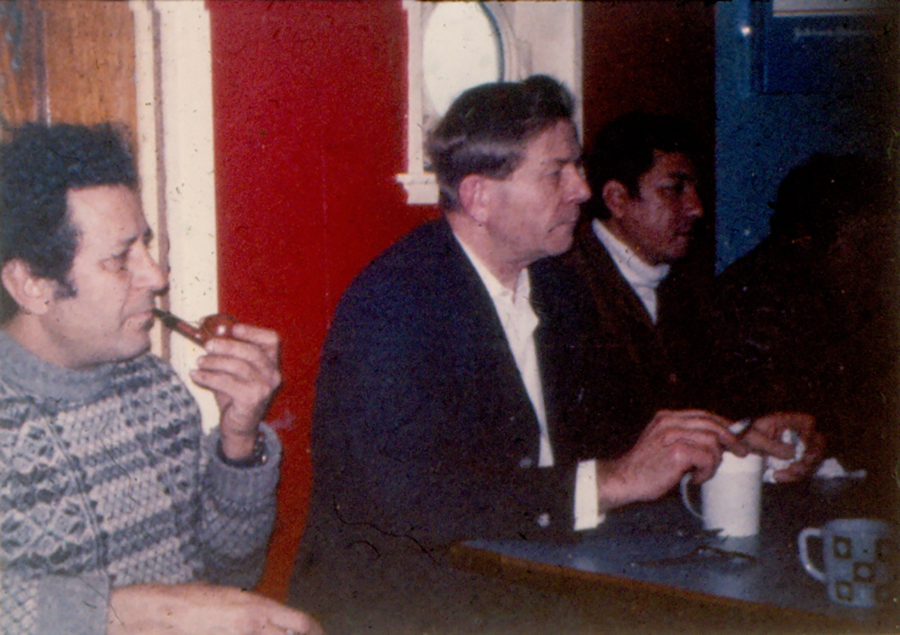
Because of Captain Halvorsen’s brilliant seamanship, an old Dutch coaster, flat-bottomed for the canals of Holland, 175 feet long with a 175 feet antenna, survived a horrible storm where three newer ships and 60 men were lost. Credit was also given to Cal Richardson, the Canadian First Mate who did a great job shaping up a novice crew during the terrible storm. And, Father is quick to point out, the ship was saved because of the intercession of Pierre Toussaint.
Once inside St. George, the hole in the ship was fixed, but there was no time to repair their fresh water holding tank; the crew would have to get used to drinking and bathing in water laced with diesel fuel.
There were also problems with the engine(the one an engineer in New Jersey predicted would never make an Atlantic crossing); water had gotten into the fuel tanks and the main engine as well, so at times it would stop cold dead and the ship would roll on the swells like a ringing church bell.
There was also a belt which ran off the generator in order to run an auxiliary cooling pump, bilge pump, and air compressor, all necessary machines. The special adhesive used to keep the belt functioning properly was used up, and it was continuously slipping off and breaking. Nobody knew what to do. Father had an idea; he came down to the engine room with his Mass candles. The wax replaced the adhesive and the belt stayed on the wheel temporarily.
They left Bermuda and in 12 days sighted the island of Madeira. It was decided that they would dock while Abie would search for a harbor and an agent in Spain.
They then sailed to Gadiz, but they were not allowed to dock because they had no agent and no ship’s cash, which Abie had taken when he left them in Madeira. So they anchored and waited. Finally Abie telegraphed and told them to proceed to Malaga where Abie had secured an agent and a harbor.
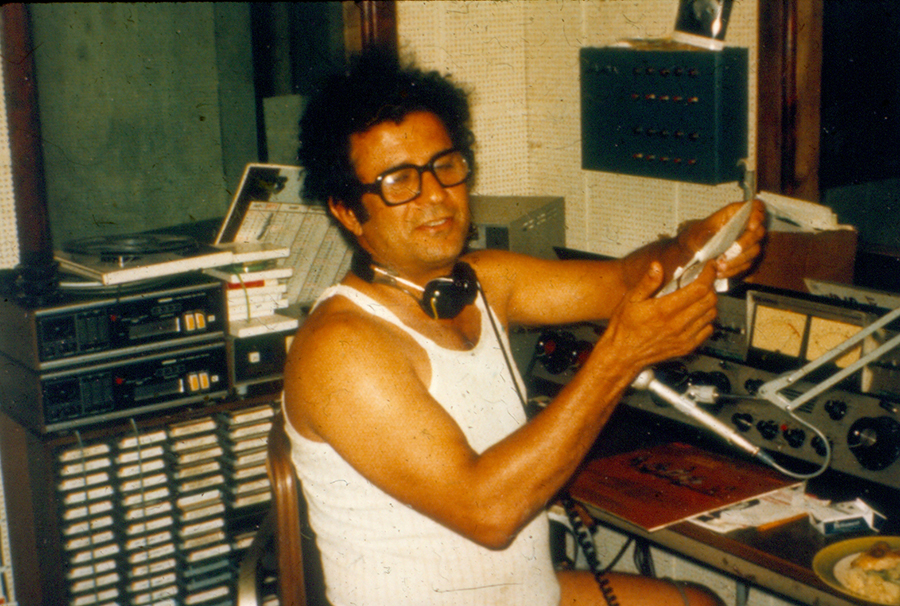
But when they arrived in Malaga, they received a bad reception; the Spanish were suspicious of the ship’s intentions; General Franco’s boat had been in the area, and the Spanish authorities thought the strange ship with her strange story might try to assassinate Franco. Spanish paranoia was exacerbated by the fact that The Peace Ship had no ship’s cash and no agent. The ship was searched and asked to leave. Just as they were leaving Abie approached in a speedboat. Bad fortune had delayed him; he had been robbed and thrown in jail in Lisbon.
Abie told them to anchor a few miles out of the harbor and he would meet them the next morning, hopefully with an agent so they could dock. They did what Abie requested but lost their anchor. The next morning they went to meet Abie at the mouth of Malaga Harbor, but Abie, who had more problems, never showed up; however, the Spanish Naval authorities did, and they ordered the ship out of the area at once!
Father, the Captain, and The First Mate, had a meeting, and it was decided that they would take the ship to Almeria, even though they were so discouraged they strongly considered giving up the project at this time.
On route to Almeria the Captain asked Father if he thought they were doing the right thing by heading for Almeria, and Father told him it might be better to leave Spain altogether and head for Marseille.
When they arrived in Marseille, they were not allowed to dock again because they lacked an agent and ship’s cash. The French authorities told them to drop anchor outside the harbor. The ship was plagued with problems; there was diesel fuel in their drinking water and things were very tense on board. With their cross too heavy to bear, the situation looked hopeless, and the project was dead in the water. But the good Lord sent them a Simon(the Cyrenean) in the form of Captain Bonzon.
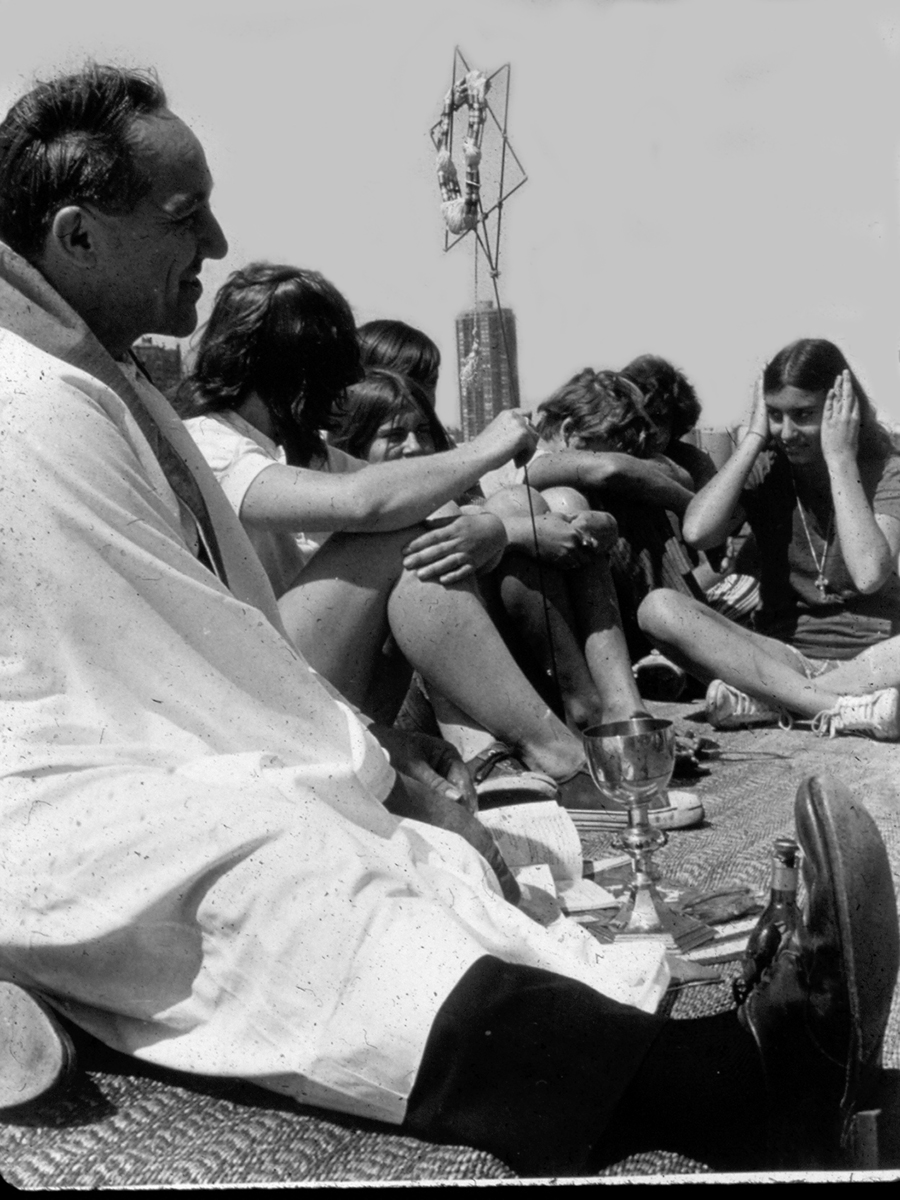
Bonzon pulled along side in a large buoy tender and asked the men if they wanted women, whiskey, or cigarettes? When he realized the gravity of the situation, he gave them a couple of bottles of wine and went to secure a berth for the troubled ship.
After they finally docked Captain Bonzon came aboard and met with the angry and disgruntled crew. They had no money, no agent, no fresh water, and no provisions. To break the dangerous tensions aboard, Bonzon had a good laugh with the crew about the absurdity of their situation and then invited them all to take showers aboard his ship. O! How good it must have felt to bathe in clean fresh water. What a relief after 20 oily days!
The next day the officers were planning to abandon ship, but Abie arrived and met with them and some of the crew. He had been to every harbor in Spain looking for a place to dock since he failed to meet them in Malaga.
The meeting was heated and intense; tempers were short from the aggravations of the last month; there were even threats of violence. And then when Abie informed the crew that they would not be paid for a year, things really got hot. In the middle of potential disaster, Captain Bonzon arrived with some wine and fruit and tempers cooled.
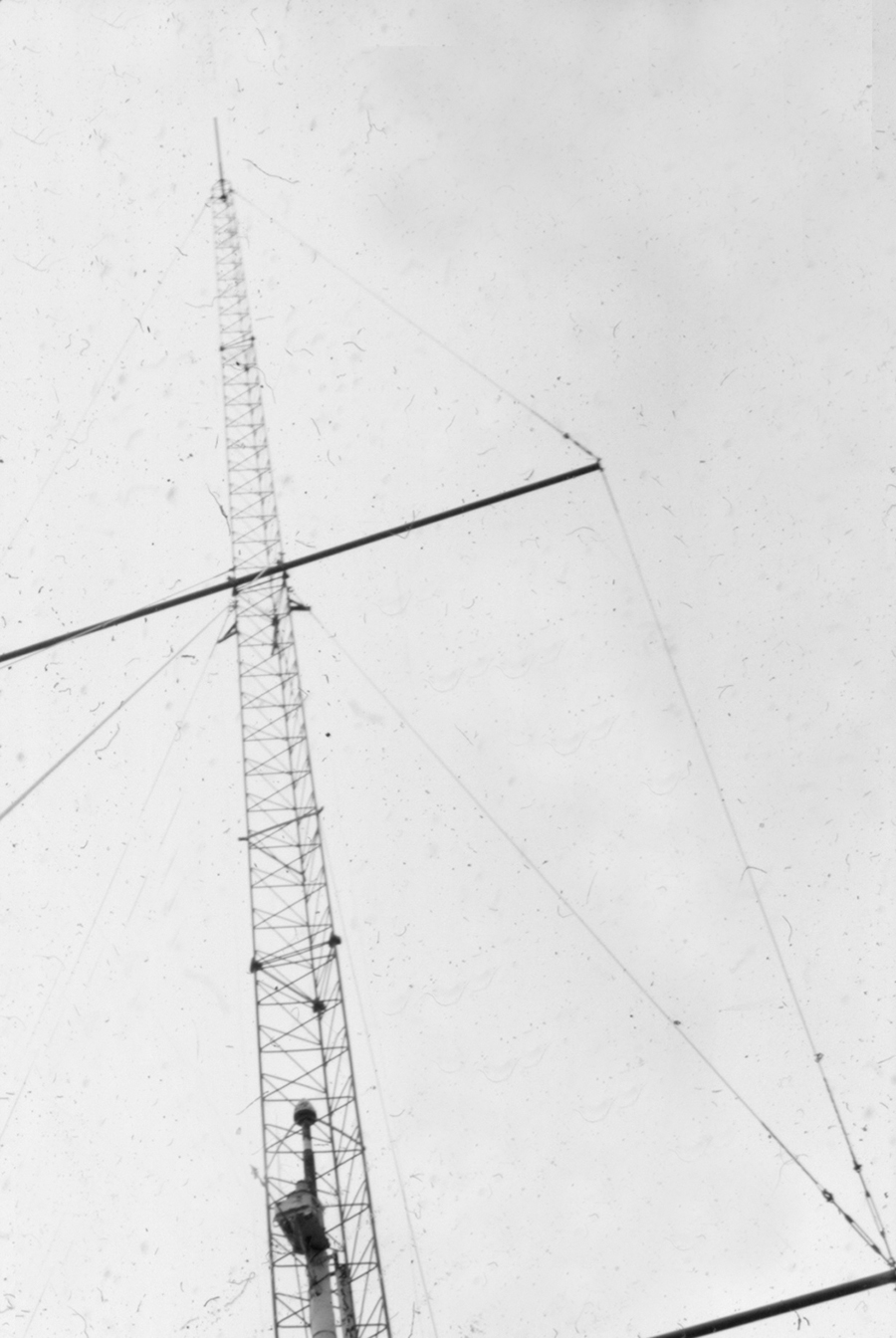
Within the next few days many of the crew, including all the officers except Father, decided to abandon the project and leave the ship. But new crewmembers came filtering in, and the resolution to continue with the project was kept firm. Father’s daily Masses and seamen reciting the Psalms of David day and night no doubt helped strengthen the common resolve.
Since now Father was the only officer left on board, Abie asked him to go to Rome to get a new electronics engineer. Abie also sent Father to Cyprus to pick up mail, get permission to dock there, and secure supplies. When Father landed in Rome, he went directly to the Vatican’s radio station and asked for help with the ship’s radio broadcasts, but the Vatican refused to help or support the ship in any way.
Then Father flew to Cyprus to take care of Abie’s requests. While there he visited the American Embassy in Nicocea and attempted to speak with the American ambassador, but his secretary told Father the ambassador was too busy. Father informed the secretary that he was from The Peace Ship and that he was staying at a hotel in town. Father wasn’t back at the hotel one hour before the phone rang:
“Come to my office first thing in the morning,” the voice said, “this is the ambassador.”
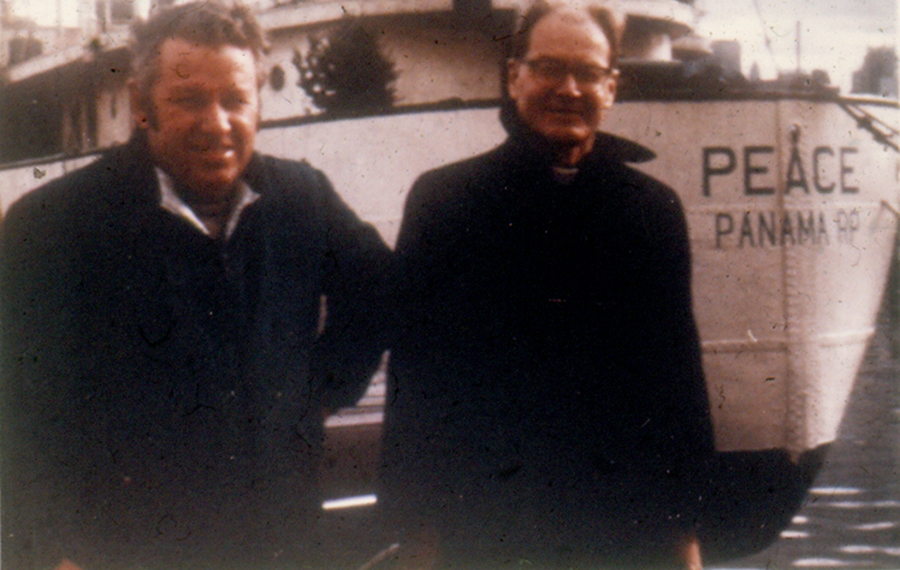
The next day Father went to see the American ambassador. It was a pleasant meeting, and the ambassador said that his teenage son would very much like to come aboard the ship.
Meanwhile back in Marseille, captain Bonzon had become the new Captain of The Peace Ship, and the new First Mate was Ludwik Pibernik, from Yugoslavia. Many other good people from Marseilles helped out the ship at this time. A crew of French engineers dismantled a cooling pump and found a broken shaft. A new one was turned and returned in good working order. Hundreds of volunteers came aboard to help out, including a young gentleman of 80 named Jean Portail, who began a Peace Ship Fund. Soon the ship was out at sea again. When they were 8 miles out of Marseille, they turned on their radio transmitters and began:
This is 1540, the Voice of Peace:
And then they played John Lennon’s “All We Are Saying Is Give Peace A Chance.” After the song, Abie gave a monologue in English, and Jean their new French cook and radio spokesman translated Abie’s words into French. They were now actually a pirate radio ship with an illegal radio transmitter; the only reason they were not boarded and seized was because they never broadcast until they were in international waters.
The weather was beautiful as they sailed to the Strait of Bonifocio toward the Messina Strait. But the devil never sleeps: their main engine was getting progressively worse. The injectors were clogged because of the seawater, which had entered the lines during the stormy trip across the Atlantic, so the engine could not run at its normal revolutions. Chief Engineer Bernard felt they should stop in Messina, Italy, for engine repair.
While in Messina, a new crewmember named Ed Simone went to get fresh vegetables for the crew. He returned with the food as well as with two kittens, which were named Goldie and Anwar. The engine was repaired and ran better than ever.
As the days passed Abie was getting increasingly nervous about time. He wanted to be off the coast of Israel on the country’s 25th anniversary; he believed that a broadcast off the coast of Israel on that day would be a very powerful message for peace.
The ship was now ready to sail to Cyprus to pick up Father, who was busy setting up a base of neutrality in the neutral country. The plan was to stay in international waters and pick up food and water in Famagusta. Also, due to the country’s neutrality, visitors and debators could come on board for dialogue. With neutral Cyprus as their base, The Peace Ship could anchor outside the coastal waters of Egypt, Israel, and Lebanon, and broadcast her message of love and peace.
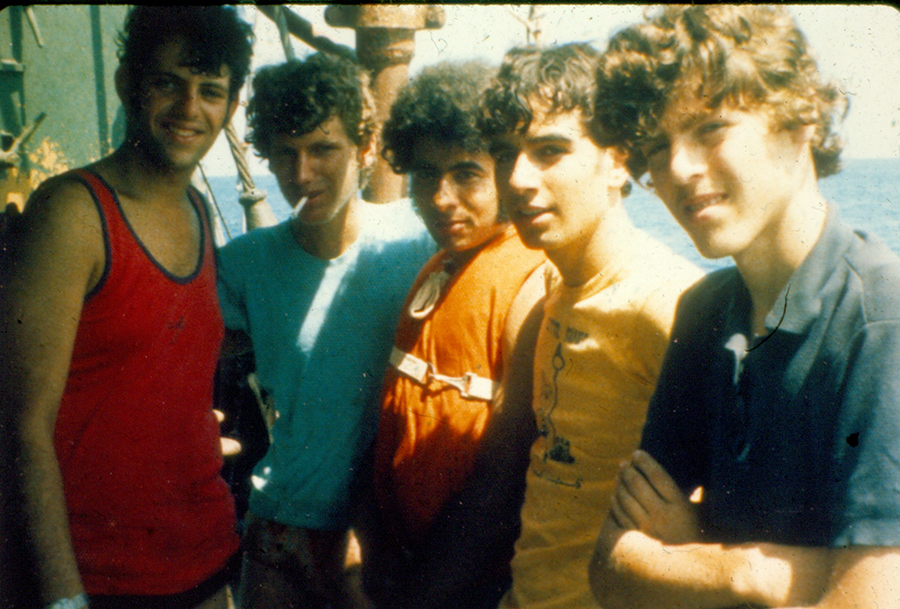
Abie was increasingly anxious to arrive at Tel Aviv for the nation’s anniversary, so he decided to sail directly there instead of sailing first to Cyprus, and Father was left waiting. This decision caused much tension aboard because many of the crew were afraid to enter a war zone. Life rafts were prepared for an emergency, but the ship arrived safely at Tel Aviv in time for the celebrations. Abie sent out monologues in English, Hebrew, and Arabic. At night they anchored 12 miles off the coast.
The next morning a boatload of newsmen and journalists were received on board. This was a huge success and a very special time for Abie; four years ago he had told the public and his friends in Israel that he would return with a ship broadcasting love and peace. He had fulfilled his promise and now he planned to fulfill his dream: he announced to the media that he would stay on board The Peace Ship until there was peace between Arab and Jew.
They stayed outside of Tel Aviv for two weeks, broadcasting messages of love and peace for 16 hours a day. Finally they left to pick up Father in Cyprus.
Father had been in Cyprus for a month now. He rented a small boat and filled it with $1000 worth of provisions and brought along a ship’s agent he had secured. But the boat was only able to venture 10 miles out to sea and Abie wouldn’t bring The Peace Ship in closer than 25 miles. So Father got a bigger boat which could go out 25 miles, but The Peace Ship still failed to make the scheduled rendezvous; instead, they sailed back to Tel Aviv. This was a big mistake since Father had met with advisors of President Makarios of Cyprus, the harbor master, and the head of customs. Permission was granted that the ship be docked in Famagusta, but their failure to meet Father and their subsequent return to Israel forfeited all of Father’s efforts as well as their neutral base in Cyprus. If Father was angry, he kept it to himself.
Father was later contacted and told that he should make his own way back to the ship. He had used up all his money and had to use a credit card to fly to Tel Aviv. Once there, before making his way to the ship, Father visited The American Embassy. As in Cyprus, he was very well received when it was learned he represented The Peace Ship. The American ambassador said he listened to the ship`s broadcasts all the time.
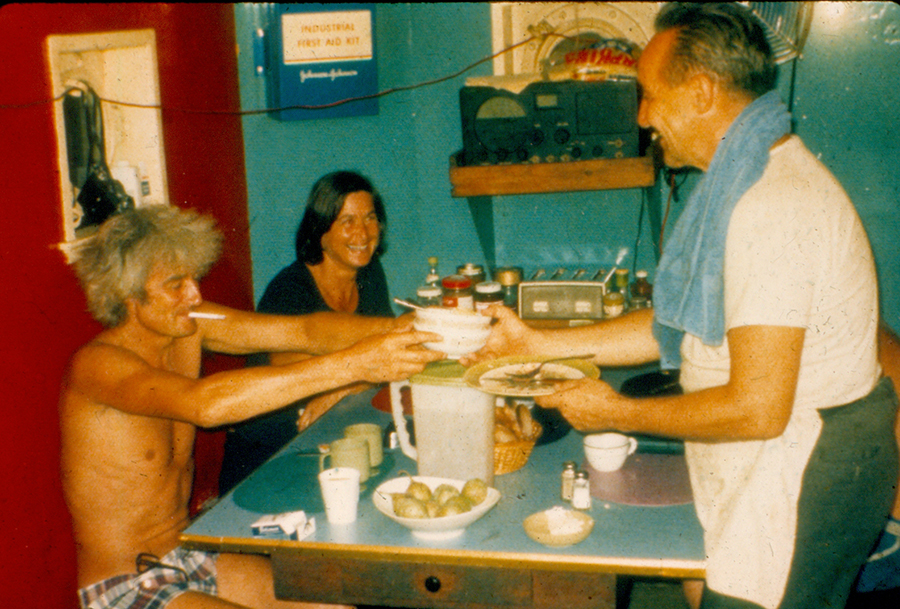
So the ship was again without a home base, but a new one was soon found in international waters outside of Ashod. They found a friendly shelf to anchor on and stayed there for four months. 1540 The Voice of Peace became a popular radio station, broadcasting to young and old, Christian, Arab, and Jew. Their programming ranged from rock to opera. Fan mail poured in, and so did volunteers sympathetic to their cause.
Their broadcasts reached approximately half the world; letters came from Norway, north of the Arctic Circle, South Africa, and New Zealand. During this time Father not only served as purser, chief steward, and cook, but radio announcer as well‑‑a radio announcer who acted as priest, rabbi, and Iman. Every Sunday he read from the Psalms, the Koran, and the New Testament, and was a special inspiration to the crew.
But Mass was just the culmination of Father’s spiritual practices on the ship. He claims that it was upon The Peace Ship, 25 years after joining the Discalced Carmelites back in seminary, that he really began keeping the hour of daily contemplation required by the order. Here, in Father’s words, is the spiritual routine he kept daily on the ship:
“I started my meditation at 4 a.m. each morning,” said Office at 5, and Mass at 6.
Today is Sunday morning, 4 a.m. My cabin is back aft with the crew. Overhead are my books, packed tightly so as not to rain down some rough night. I slip out of bed and look out the porthole. Way in the distance I can see a few lights of the oil port of Ascalon, from whose name we get ‘scallions.’
“I wash and softly climb the steep stairs into the mess hall. All is dark. I swing left into the galley and fill a kettle with water to make a hot tea. As I step over the high door jam, I nearly land on Anwar and Golda, the kittens about to con me for some milk.

“All is still. Directly to the aft lie the lights of Ashod, to the north a few lights from Tel Aviv–all seems still and peaceful. But I know our few lights are constantly watched by security in the port tower of Ashod. I find my chair, sit down, put my feet up on the rail and whisper, “Lord, good morning.” A kitten seems to want to join me on my lap. I assist her up. With Golda on my lap I try to recall the prayer of the Jewish priest Zachary. It comes ever so slowly; I peek in my breviary and finish it:
Blessed be the Lord, the God of Israel, because He has visited
And wrought redemption for His people. And has raised up a horn
Of salvation for us in the house of David his servant, as He promised
Through the mouth of His holy ones, the prophets of old:
To deliver us from our enemies, and from the hand of all who hate us,
To show mercy to our forefathers and to be mindful of His holy covenant:
Of the oath He swore to Abraham our father, that He would grant us,
That delivered from the hand of our enemies we should serve Him without fear,
In holiness and justice before Him all our days.
And thou child shall be called the prophet of the Most High: for thou shall
Go before the face of the Lord to prepare His ways,
To give to His people knowledge of salvation through the forgiveness of their sins.
Because of the loving kindness of our God, wherewith the Orient from on high will
Visit us, to shine on those who sit in darkness and in the shadow of death, to guide
Our feet into the way of peace. Amen.”
Abie wanted a rabbi to come out to the ship on Saturday or Sunday, but not one came from all of Israel. Abie resented this, so he told Father to say Mass over the radio daily.
“We’re 12 miles off the coast of Israel and you want to broadcast a 50,000 watt daily Catholic Mass!?” asked Father.
“If they won’t supply a rabbi, then that’s their tough luck!” replied Abie.
So with his vestments on in the radio room, Father said a daily Mass off the coast of Israel which was heard half way around the world. He would begin like this:
“Good morning everybody and Shalom. This is Father Charley from The Peace Ship. I am going to offer a Christian seder. I am going to do what king/priest Melchizedek did for Abraham when Abraham wanted to make an offering to God. Instead of slaying a lamb or a goat, Melchizedek had an altar built of stone and offered an un-bloody sacrifice of bread and wine. A thousand years before Christ was born the Psalms prophetically said that the Messiah will be a priest according to the order of Melchizedek. So in the same way allow me to offer the bread and wine of the Eucharist in my Mass.”
Abie did some broadcasting tricks as well. He would record the BBC`s 5 o’clock news and broadcast it from the ship as the Voice of Peace News. Once he taped Golda Meir giving a speech and edited it by breaking in and commenting on certain points, as if he and Golda were having a discussion.
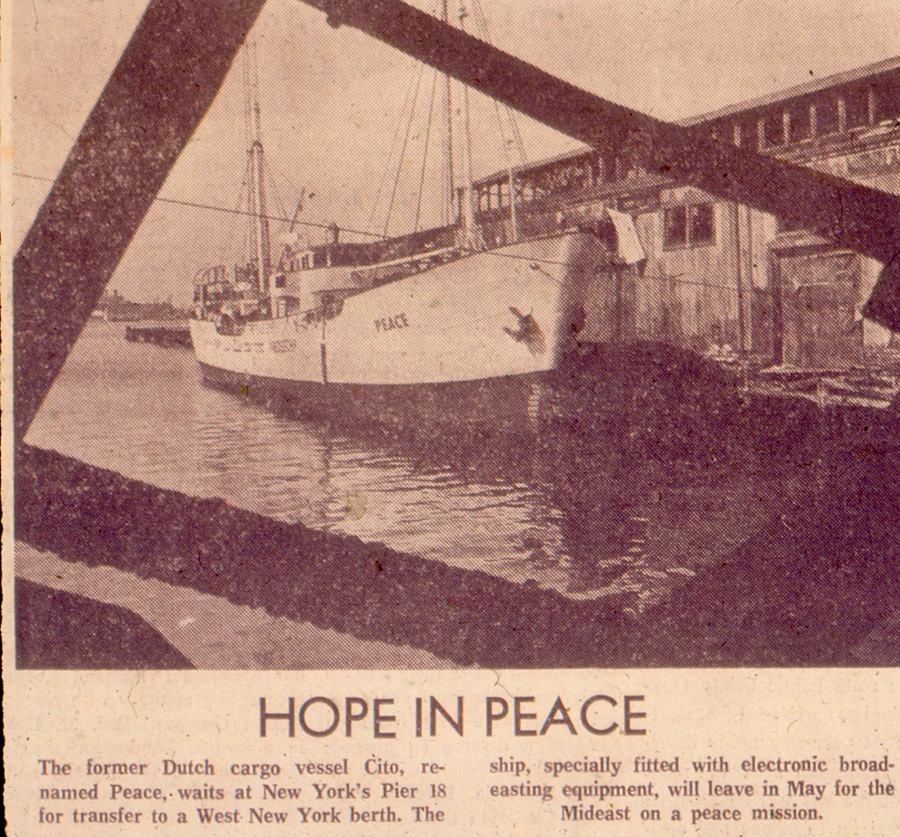
At one time Coca Cola bought some advertising time on the Voice of Peace. When the ads were pulled Abie went on the air and advertised the benefits of drinking water:
“Folks there is nothing like good fresh healthy water, no syrup, no sugar, etc.”
Arab and Jewish journalists were welcome and encouraged to come aboard for dialogue so half the world could hear both sides of their conflict.
One of the most incredible ideas born on the ship was the meeting and dialogue of Jewish and Arab students. In 1973 the Israeli government sponsored “youth capital.” Every village and town was asked to send delegates to Jerusalem. The delegates were chosen from young native‑born Arabs and Jews. They came from Nahoriya, Netanya, Ashkilon, Tel Aviv, Ashdod, Jericho, Safad, Tiberius, etc. They were the sons of Abraham, the sons of Ishmael, and Isaac. They were tired of war and yearned for peace, and they hoped to come to some kind of compromise, which would result in peace between Arab and Jew: “Salem, Shalom!”
When the delegates conveyed in Jerusalem, the director of the program asked if four Jewish delegates would be willing to live with four Arab delegates. Would they be willing to live together and have dialogue in order to achieve peace? So many delegates volunteered for this proposal that restrictions had to be imposed. The eight delegates would have to be tri‑lingual in English, Arabic, and Hebrew; four would be high school students, and four would be college students. It was also agreed that a young French female doctor and a psychiatrist would stay with them.
During one of the meetings to work out the plan someone turned on the radio, which happened to be tuned to 1540, and the Voice of Peace came in loud and clear:
All we are saying
Is give peace a chance!
Simultaneously many there had the same thought: why not have the eight chosen delegates live and work for peace aboard The Peace Ship? A radio message was sent to the ship and within an hour the answer came: “Let my people come!” replied Abie, “Let my people come!”
So the eight students came aboard the ship; they lived, ate, and had fun, and at night half the world heard their dialogue broadcast on 1540 The Voice of Peace. On the fourth day the leader of the Jewish group, Eliakim Levy, submitted a proposal to Walid Shahouk, the leader of the Arab group. And in August of 1973, three months before the Yon Kippur War, Arab and Jewish delegates came to an acceptable peace on board The Peace Ship. The following terms were agreed upon:
- The Palestine question was the most immediate problem.
- The safe existence of Israel is guaranteed.
- The West Bank and Gaza should be called Palestine.
- Arabs of Palestine are to be given dual citizenship of both Palestine and Israel.
- No tariffs or duties.
- After Jews and Arabs work hard to develop their respective areas, a mutual respect will develop between them.
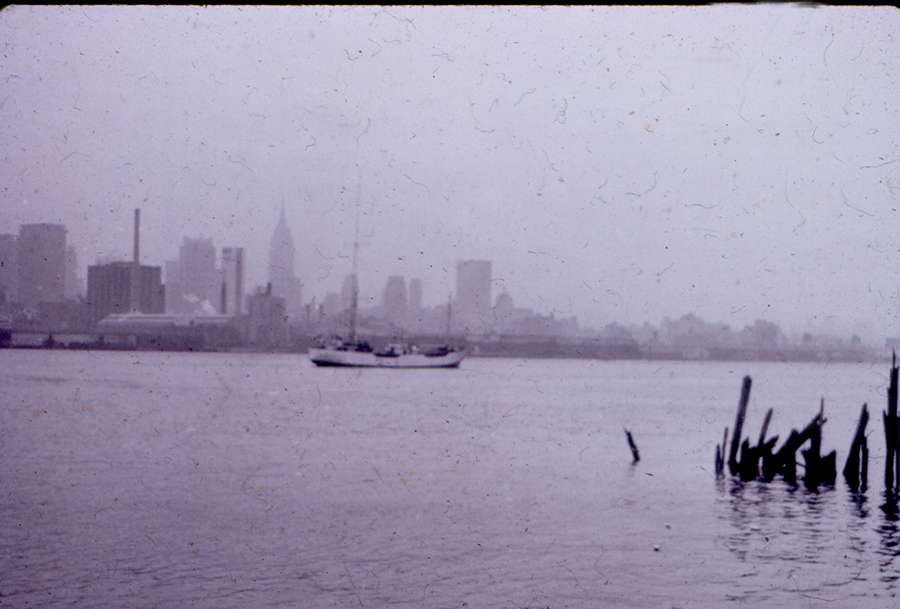
Arabs and Jews embraced and shook hands. Press reports were sent out to The New York Times and The Jerusalem Post via the Tel Aviv Post Office. They were never published. Were they ignored? Sabotaged? Father doesn’t know, but history knows that 3 months later over one thousand lives were lost in the 1973 Yon Kippur war.
But The Peace Ship had fulfilled her mission: a neutral place for negotiations between Arabs and Jews was provided. The negotiations were broadcast to half the world, but to the dismay of the world, the enemies took no heed.
At the end of the year(1973), Father left the ship, which stayed faithful to her mission for another ten years, broadcasting and working for peace. But the ship’s mission created many enemies in Israel for Nathan, and in 1989, he spent time in an Israel jail for his beliefs.
And in 1993, Abie Nathan sunk The Peace Ship.
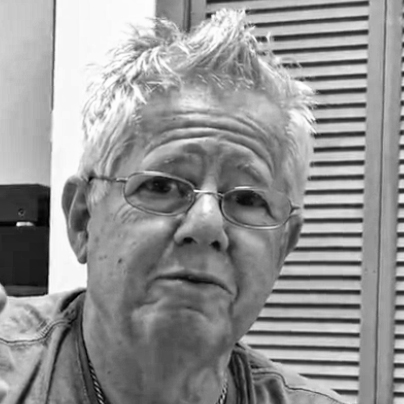
George Pereny is a writer, songwriter and musician based in New Jersey. A former English teacher, he shared his expertise with high schools and colleges for more than thirty years, and developed an inovative method for teaching his students — rapping. His decades-long relationship with fellow musician Lou Leo, has resulted in dozens of albums and musical collaborations across the country.

